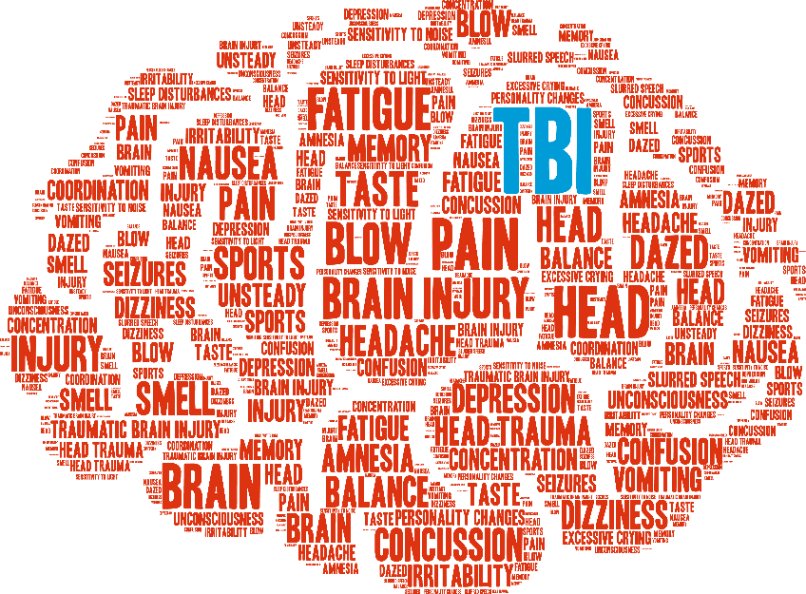

Traumatic Brain Injuries in Focus on National Concussion Awareness Day
National Concussion Awareness Day ® is tomorrow, Friday, September 16th, 2022 so we figured this would be a good time to put some focus on traumatic brain injuries (TBI). As traumatic brain injury lawyers, we have seen first hand the life changing impact a traumatic brain injury can have. Studies have shown that even a “minor” TBI can increase the risk of dementia and other health issues later on in life. When a TBI is caused by the negligent or willful act of another, it only adds to the emotional distress of the injury.
(more…)
Read More

When Should I Seek Medical Attention for a Head Injury?
Head injuries are the cause of almost 250,000 US hospital admissions and an estimated 50,000 deaths every year. Car accidents and sports injuries are to blame for almost 90% of head injuries. In many cases, there are others involved in the cause of your accident; seeking the help of an experienced head injury lawyer will greatly impact your ability to receive compensation for your losses.
It is important to understand that a head injury can be classified as minor or major. A minor head injury is typically a sports related concussion, a jarring of the brain inside the skull that causes a temporary loss of mental function. There is a list of seven symptoms that doctors look for to determine whether a person needs a CT scan; if the symptoms are not present a doctor may choose not to order a scan. The CT scan, however, is the most prominent way to show internal bleeding (epidural hematoma) or swelling and determine whether a head injury is major or minor.
Symptoms that often Prompt a CT Scan:
1. Headache
2. Vomiting
3. Short term memory loss
4. Head injury combined with patient intoxication
5. Seizure
6. Physical evidence of trauma to the head or neck
7. Head injury to patients over age 60
Major head injuries can cause long term brain damage or even death and should be treated immediately.
Major Head Injuries
It is important to understand that the initial blow to the head may not seem that traumatic and the person may not even lose consciousness. After a major head injury, there can be a period of lucidity followed by major symptoms of trauma. The death rates from a major head injury vary widely from 5% to 40% depending on the health and age of the patient.
Signs that a Head Injury is Very Serious and Requires Emergency Treatment:
- Changes in size of pupils or blurred vision
- Clear or bloody fluid draining from the nose, mouth, or ears
- Convulsions
- Distorted facial features
- A serious drop in blood pressure or ability to breathe
- Bruising or fracture of the face or skull
- Loss of hearing, smell, taste, or vision
- Inability to move one or more limbs
- Irritability
- Loss of consciousness
- Restlessness, clumsiness, or lack of coordination
- Severe headache
- Slurred speech
- Stiff neck or vomiting
- Sudden worsening of symptoms after initial improvement
- Swelling at the site of the injury
Because the injured person may be experiencing loss of consciousness or confusion and blurred thinking, they are not likely the best candidate to decide whether they need medical care. Friends and family should bear in mind that if a person is not acting like themselves after a blow to the head then medical attention should be sought immediately.
When a brain injury occurs, a person is most likely to have a good outcome when they are able to maintain consciousness; a coma is often a bad sign. Even when a person receives appropriate treatment, there are no guarantees about recovery from a head injury.
Whether you were injured at work, home or on the sports field, many head injury accidents are actually caused by the reckless or negligent behavior of others and you are entitled to be compensated for your suffering and losses. With decades of experience, the head injury attorneys at Tario & Associates, P.S. will help you wade through your head injury case and fight for the compensation you deserve. Call us today!
Read More

Common Causes of Head Injury
Two million Americans will suffer a head injury this year; most will be minor but over a half a million of these accidents will require hospitalization.
Although it should go without saying that a head injury be taken seriously, many people consider head injuries as an acceptable risk while playing sports. In a worst case scenario, a head injury can bring on permanent disability, mental impairment or even death.
Definition: A head injury, also called a traumatic brain injury, head trauma, or concussion, is any trauma to the head that leads to injury of the scalp, skull, or brain. A head injury is either closed or penetrating. A closed head injury is one where the head sustains a blow from an object. A penetrating head injury is one where the object strikes the head, breaks through the skull and enters the brain.
The most common type of head injury is a concussion in which the brain is jarred inside the head. There are an estimated 1.6 million to 3.8 million sports-related concussions a year in the United States. A concussion temporarily alters ones mental state and multiple concussions can have long-term or permanent effects on mental cognition. Keep in mind that you do not necessarily need to be knocked in the head or lose consciousness to experience a concussion.
Permanent brain damage can be caused with a serious concussion; examples include when bleeding occurs inside the brain (intracranial hematoma), or when nerve cells are damaged (a diffuse axonal injury), or an infection is caused by blunt trauma (subdural empyema). The severity of the injury can determine the symptoms endured which can include paralysis, coma, seizures, personality changes, hearing and vision loss, loss of taste and smell and cognitive or learning disabilities. Damage may be immediately obvious or take hours or days to crop up.
Other traumatic brain injuries include contusions which are a bruise on the brain causing swelling and a hematoma which is bleeding in the brain that collects and forms a clot. A skull fracture is also considered a head injury; it is particularly dangerous when pieces of bone cut into the brain and cause bleeding.
If you or a loved one experience bleeding, an altered state of consciousness, convulsions, severe headache, skull fracture or scalp wound, blurred vision or pupil changes, a stiff neck, slurred speech or fluid draining from your nose, mouth or ears you should seek medical attention immediately. A delay in the diagnosis of a head injury could cause further damage or death.
Signs of a Head Injury
- Double or blurred vision
- Confusion
- Dizziness or balance issues
- Depression
- Feeling cloudy, groggy or sluggish
- An enduring headache
- Memory loss
- Nausea
- Sensitivity to light or noise
- Trouble sleeping
- Trouble concentrating or remembering
Causes of Head Injury
Apart from sports accidents, common causes of head injuries are car accidents, work-site accidents, falls at home or work, and industrial accidents.
Sports are the biggest cause of head injuries. The top 5 most offending sports in the United States include:
1. Cycling
2. Football
3. Basketball
4. Baseball and softball
5. Water sports such as diving and water skiing
Whether you were injured at work, home or on the sports field, many head injury accidents are actually caused by the reckless or negligent behavior of others and you are entitled to be compensated for your suffering and losses. With decades of experience, the head injury attorneys at Tario & Associates, P.S. will help you wade through your head injury case and fight for the compensation you deserve. Call us today!
Read More